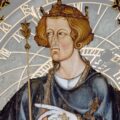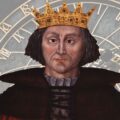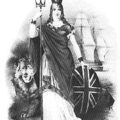The House of Hanover – Georgian and Victorian Britain
The House of Hanover – Georgian and Victorian Britain
 History Timeline – House of Windsor
History Timeline – House of Windsor
 House of Saxe-Coburg Gotha
House of Saxe-Coburg Gotha
 History Timeline – The Stuarts
History Timeline – The Stuarts
 History Timeline 1399 – 1485
History Timeline 1399 – 1485
 History Timeline 1154 – 1399
History Timeline 1154 – 1399
 History Timeline – The Tudors
History Timeline – The Tudors
 Ancient Britain to 1154
Ancient Britain to 1154
 Monarchs Poem
Monarchs Poem
 In Praise of Queens – Why Women Should Reign over Britannia
In Praise of Queens – Why Women Should Reign over Britannia
 British History Resources
British History Resources
 Elizabeth I Timeline
Elizabeth I Timeline
 On This Day in History – Sir Francis Drake Knighted and the Birth of William Strachey
On This Day in History – Sir Francis Drake Knighted and the Birth of William Strachey
Copyright © 2025 The Elizabeth Files